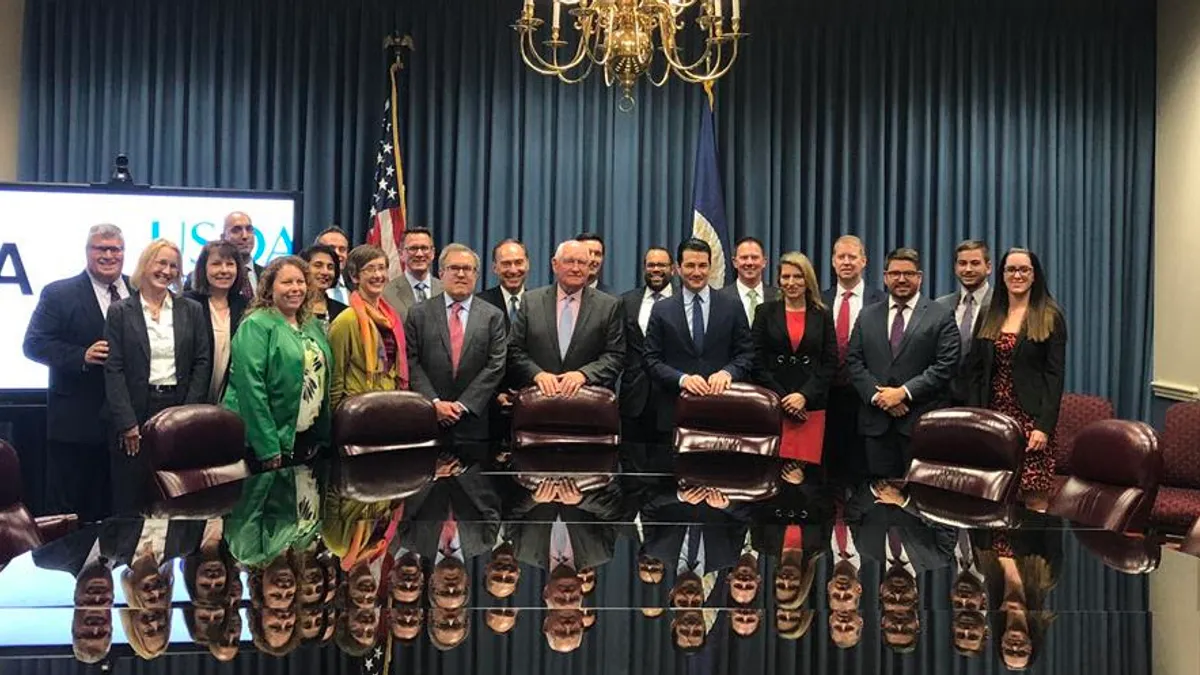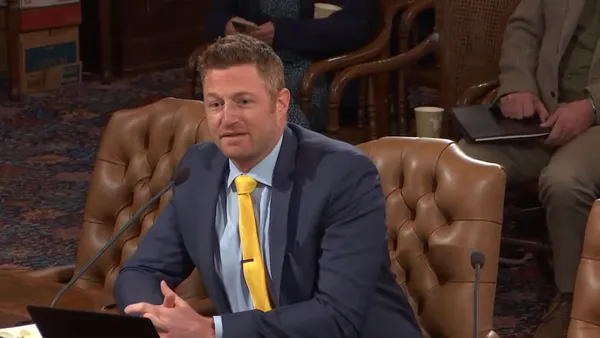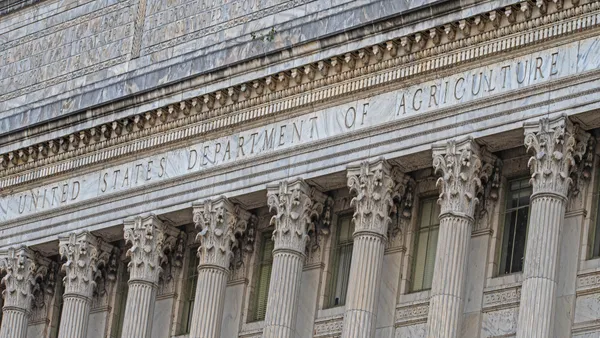Dive Brief:
- The U.S. Department of Agriculture (USDA), Environmental Protection Agency (EPA) and Food and Drug Administration (FDA) have launched a new initiative called "Winning on Reducing Food Waste." The respective heads of each agency signed a joint formal agreement to tackle the issue on Oct. 18.
- According to that agreement, the purpose is to affirm a "shared commitment to reducing food loss and waste and commit to developing a strategic plan for coordination and communication among the EPA, FDA and USDA that will leverage government resources more efficiently, saving taxpayer dollars while effectively addressing issues where the Parties have common issues and goals.”
- The signing took place in USDA's office and was accompanied by a panel discussion about food waste reduction. Kroger, Hilton, and MGM Resorts International joined the U.S. Food Loss and Waste 2030 Champions initiative at the event, bringing its ranks up to 23 companies.
Dive Insight:
The joint EPA-USDA goal of cutting food waste 50% by 2030 came out of the Obama administration in 2015 and is one of the few environmental initiatives from that era to survive under President Trump. Though former EPA Administrator Scott Pruitt previously expressed an affinity for the topic and USDA Secretary Sonny Perdue has made it a priority as well. The fact that it is a voluntary commitment with no financial obligation — a point reiterated in this new joint agreement text — likely helps.
Both agencies were on hand to discuss their latest efforts at this summer's U.S. Food Waste Summit in Cambridge, Massachusetts and outlined multiple ongoing initiatives. At the time, the director of sustainable development in the USDA's Office of the Chief Economist told Waste Dive she saw a clear case for this issue fitting within the Trump administration's priorities of self-sufficiency and helping strengthen the economic position of farmers.
In that vein, Perdue's press release statement called this a "common sense" issue. Acting EPA Administrator Andrew Wheeler said "redirecting excess food to people, animals, or energy production has tremendous economic and social benefits," and FDA Commissioner Scott Gottlieb focused on the nutritional angle.
Each agency does have a role to play — whether that means clarifying date labeling and donation liability regulations, helping fund new infrastructure, or facilitating corporate commitments — but the federal government's action plan on this 2030 goal has always been vague. That was the case under the Obama administration and remains unchanged after this latest Trump-style announcement. More tangible federal action could be forthcoming once the now overdue Farm Bill is passed, likely after the midterm elections.
If nothing else, this latest photo op may help raise awareness about food waste at a time when it has been somewhat overshadowed by the similarly daunting conversation around marine debris and plastic waste. According to a recent UN report, progress toward a parallel global goal of halving food waste by 2030 is lagging and much more action will be needed to achieve it. For those concerned by the fact that such large quantities of edible food is still being wasted, leading to potent methane emissions that exacerbate the growing climate crisis, it may be good news to see that this can be a nonpartisan issue.















